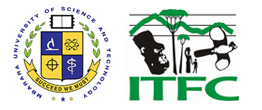Uganda has extensive protected areas and iconic wildlife (including mountain gorillas), which exist within a complex social and political environment.
In recent years Uganda has been seen as a test bed and model case study for numerous and varied approaches to address complex and connected conservation and development challenges. This volume reviews and
assesses these initiatives, collecting new research and analyses both from emerging scholars and well-established academics in Uganda and around the globe. Approaches covered range from community-based conservation to the more recent proliferation of neoliberalised interventions based on markets and payments for ecosystem services.
Drawing on insights from political ecology, human geography, institutional economics, and environmental science, the authors explore the challenges of operationalising truly sustainable forms of development in a country whose recent history is characterised by a highly volatile governance and development context. They highlight the stakes for vulnerable human populations in relation to large and growing socioeconomic inequalities, as well as for Uganda’s rich, unique, and globally signicant biodiversity. They illustrate the conicts that occur between competing claims of conservation, agriculture, tourism, and the energy and mining industries. Crucially, the book draws out lessons that can be learned from the Ugandan experience for conservation and development practitioners and scholars around the world.
Report File
- DocumentSandbrook et al 2018.pdf (433.17 KB)
